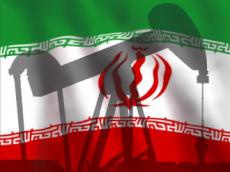|
|
TODAY.AZ / World news
Iran oil supply risk to stagnate
31 October 2017 [12:33] - TODAY.AZ

By Trend
There is a risk of stagnating Iranian oil supplies supplies in 2018, the US JP Morgan Bank analysts believe.
The report obtained by Trend says that Iran’s strong compliance with OPEC deal is mostly due to lower-than-expected new oil supply coming online since the sanctions were lifted.
"Although there is a pipeline of new oil expected from West Karoun and some southern and central Iranian fields, which is a risk in 2018 in terms of Iranian compliance, equally there is also a risk of stagnating Iranian supplies if oil companies were to take a second look at investing in Iran after the US President Donald Trump’s decision to disavow the P5+1 deal, adding to uncertainty around capital investments," said the JP Morgan Bank analysts.
Earlier, the US Senate passed a bill to pose new sanctions on Iran over the missiles.
Iran and the five permanent members of the United Nations Security Council plus Germany signed the JCPOA on July 14, 2015 and started implementing it on January 16, 2016.
Under the agreement, limits were put on Iran’s nuclear activities in exchange for, among other things, the removal of all nuclear-related bans against the Islamic Republic.
Iran’s oil output registered a tiny increase in September by 9,000 barrels per day month-on-month, and stood at 3.827 million barrels per day (mb/d), OPEC reported Oct. 11.
According to the report, Iran’s September oil output was 309,000 b/d more than the 2016 average and 991,000 b/d more than the 2015 output.
The Islamic Republic’s oil output was 3.848 mb/d in September, according to an OPEC report based on direct communications, indicating a 21,000-barrel difference between OPEC's estimates and Iran’s data.
On May 25, 2017, OPEC member countries and non-OPEC parties, Azerbaijan, Kingdom of Bahrain, Brunei Darussalam, Kazakhstan, Malaysia, Mexico, Sultanate of Oman, the Russian Federation, Republic of Sudan, and the Republic of South Sudan agreed to extend the production adjustments for a further period of nine months, with effect from July 1, 2017.
The reductions will be on the same terms as those agreed in November.
URL: http://www.today.az/news/regions/166325.html
 Print version
Print version
Connect with us. Get latest news and updates.
See Also
- 23 December 2025 [09:00]
China commissions world’s first methanol-powered oil supertanker - 23 December 2025 [08:00]
Japan moves to restart its largest nuclear power plant - 22 December 2025 [22:23]
One in five teens worldwide faces an eating disorder - 22 December 2025 [21:55]
Hyundai Motor to debut humanoid robot at CES 2026 - 22 December 2025 [19:22]
New free trade accord reached between India and New Zealand - 22 December 2025 [13:30]
Russian Lieutenant General killed in Moscow car explosion - 22 December 2025 [09:00]
Trump, Starmer discuss Ukraine, Gaza on phone - 22 December 2025 [08:00]
Pashinyan thanks President Ilham Aliyev for opening transit cargo and trade opportunities - 20 December 2025 [21:20]
Seven elephants killed by train accident in India - 20 December 2025 [20:45]
Ukraine says it hit Russian oil rig, patrol ship in Caspian Sea
Most Popular
 100 million is wasted: who pays for the fake history of the South Caucasus
100 million is wasted: who pays for the fake history of the South Caucasus
 New free trade accord reached between India and New Zealand
New free trade accord reached between India and New Zealand
 Opening of regional communications: equating to TRIPP
Opening of regional communications: equating to TRIPP
 "Garegin's days are numbered" is another reminder warning to the Armenian Catholicos
"Garegin's days are numbered" is another reminder warning to the Armenian Catholicos
 Azerbaijan’s FM honors Colombian Ambassador as he concludes mission
Azerbaijan’s FM honors Colombian Ambassador as he concludes mission
 Final statements delivered in trial of Armenian citizens at Baku Military Court
Final statements delivered in trial of Armenian citizens at Baku Military Court
 Presentation of 'Asaf Zeynalli Selected Works' held online from Australia
Presentation of 'Asaf Zeynalli Selected Works' held online from Australia
